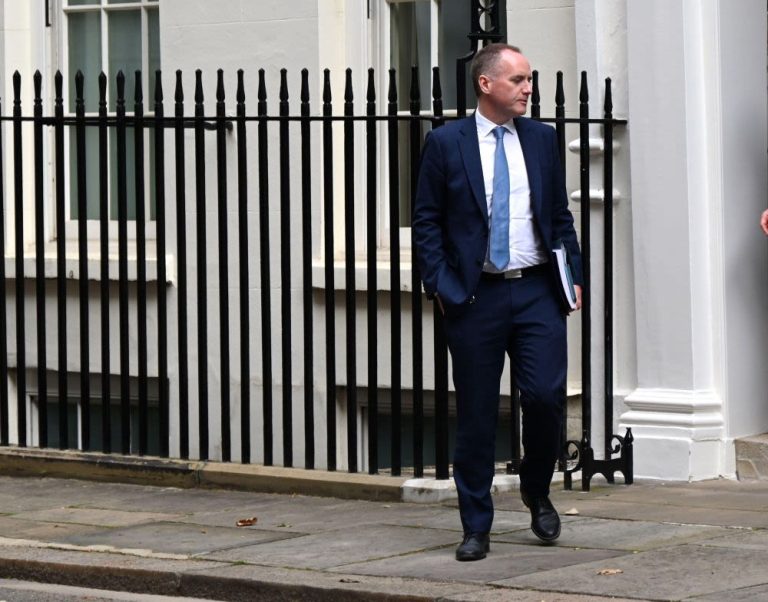
Trump Ousts BLS Commissioner Over “Rigged” Jobs Figures
President Donald Trump has removed Erika McEntarfer, head of the Bureau of Labor Statistics (BLS), following the release of a lackluster July jobs report and significant downward revisions to May and June hiring numbers. The decision, announced via Trump’s social platform, Truth Social, came amid allegations that BLS data were “manipulated for political purposes” – claims the administration has not substantiated with evidence.
Allegations of Political Interference
In a series of posts, Trump wrote: “In my opinion, today’s Jobs Numbers were RIGGED in order to make the Republicans, and ME, look bad.” He directed his team to “fire this Biden Political Appointee, IMMEDIATELY,” vowing to replace her “with someone much more competent and qualified.”
Such accusations threaten the reputation of the BLS, whose monthly employment reports are widely regarded as the “gold standard” of economic data. Wall Street investors and economists have long trusted BLS figures to be free from political bias, making Trump’s claims all the more controversial.
Stark Revisions Shake Confidence
Friday’s jobs report showed the U.S. economy added just 73,000 positions in July, a sharp slowdown from earlier estimates. Even more striking were the revisions to prior months:
- May job gains were revised down from an initially reported 125,000 to just 19,000.
- June gains fell from 147,000 to 14,000.
- The unemployment rate ticked up to 4.2% from 4.1% in June.
These downward adjustments signaled that the labor market cooled more than first believed, contradicting earlier assessments of robust hiring under Trump’s tariffs-driven economic policies. Observers point to rising inflation in June and tighter monetary conditions as possible factors in the slowdown.
Administration’s Response
Labour Secretary Lori Chavez-DeRemer confirmed on X that Erika McEntarfer would be replaced by Deputy Commissioner William Wiatrowski as acting director. “I support the President’s decision to replace Biden’s Commissioner and ensure the American people can trust the important and influential data coming from BLS,” she said.
The swift replacement underscores the administration’s determination to restore confidence in employment data, even as it faces criticism for appearing to politicize a traditionally independent statistical agency.
Criticism from Lawmakers and Economists
Democratic Senate Leader Chuck Schumer sharply rebuked Trump’s move: “What does a bad leader do when they get bad news? Shoot the messenger,” he said in a floor speech. Schumer and other Democrats warned that firing the BLS commissioner over data they disagree with sets a dangerous precedent for tampering with official statistics.
Economists also voiced concern that undermining the credibility of BLS reports could hamper policy-making. “Reliable labor market data are crucial for Fed decisions on interest rates,” noted one former Treasury analyst. “Politicizing those numbers risks destabilizing financial markets and economic planning.”
The Role of BLS and Its Commissioner
Erika McEntarfer, appointed by President Biden in 2023 and confirmed by the Senate in an 86-8 vote, led the agency that publishes key metrics like payroll figures and unemployment rates. BLS commissioners typically serve four-year terms, but as political appointees, they can be dismissed by the sitting president.
The BLS itself comprises hundreds of career civil servants who gather payroll data from thousands of businesses, conduct household surveys, and apply rigorous methodologies to ensure accuracy. The commissioner oversees this process but does not personally compile or revise the raw figures.
Market Implications of Slow Hiring
Investors reacted swiftly to Friday’s report, with major U.S. indices falling roughly 1.5% amid fears that weaker-than-expected job growth could signal a broader economic slowdown. Analysts warned that tepid employment gains could weaken consumer spending and corporate earnings, potentially dragging on growth in the coming quarters.
Reports of substantial tariff-driven price pressures in June have also raised concerns about persistent inflation, leading some to question whether the Federal Reserve will be forced to maintain higher interest rates for longer.
Trump’s Evolving View on Jobs Data
Interestingly, Trump’s relationship with the jobs report has not always been adversarial. In June, when BLS initially reported 139,000 jobs added in May, he celebrated on social media: “GREAT JOB NUMBERS, STOCK MARKET UP BIG!” he wrote. Only after the data were downwardly revised did he criticize the agency for purported “manipulation.”
This historical context highlights the administration’s shift from praising strong statistics to denouncing unfavorable revisions – a reversal that has alarmed both political observers and statistical experts.
Looking Ahead
With William Wiatrowski now serving as acting BLS director, all eyes will be on the next employment release to see if data credibility is restored. Meanwhile, lawmakers from both parties are likely to debate safeguards to ensure that statistical agencies remain insulated from political pressure. Policymakers, investors, and the public alike will be watching closely, given the critical role that labour market data play in shaping economic policy and public confidence.





